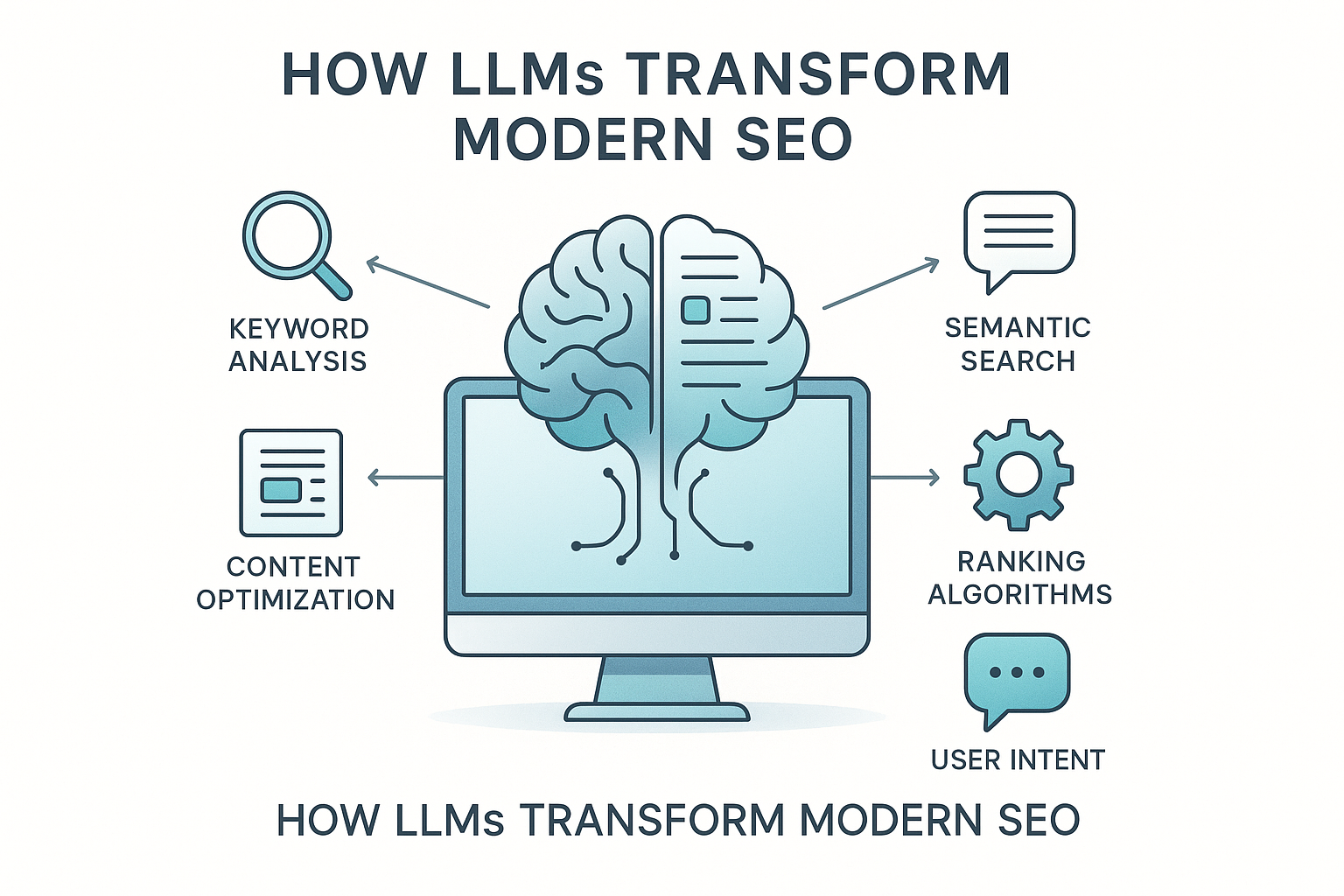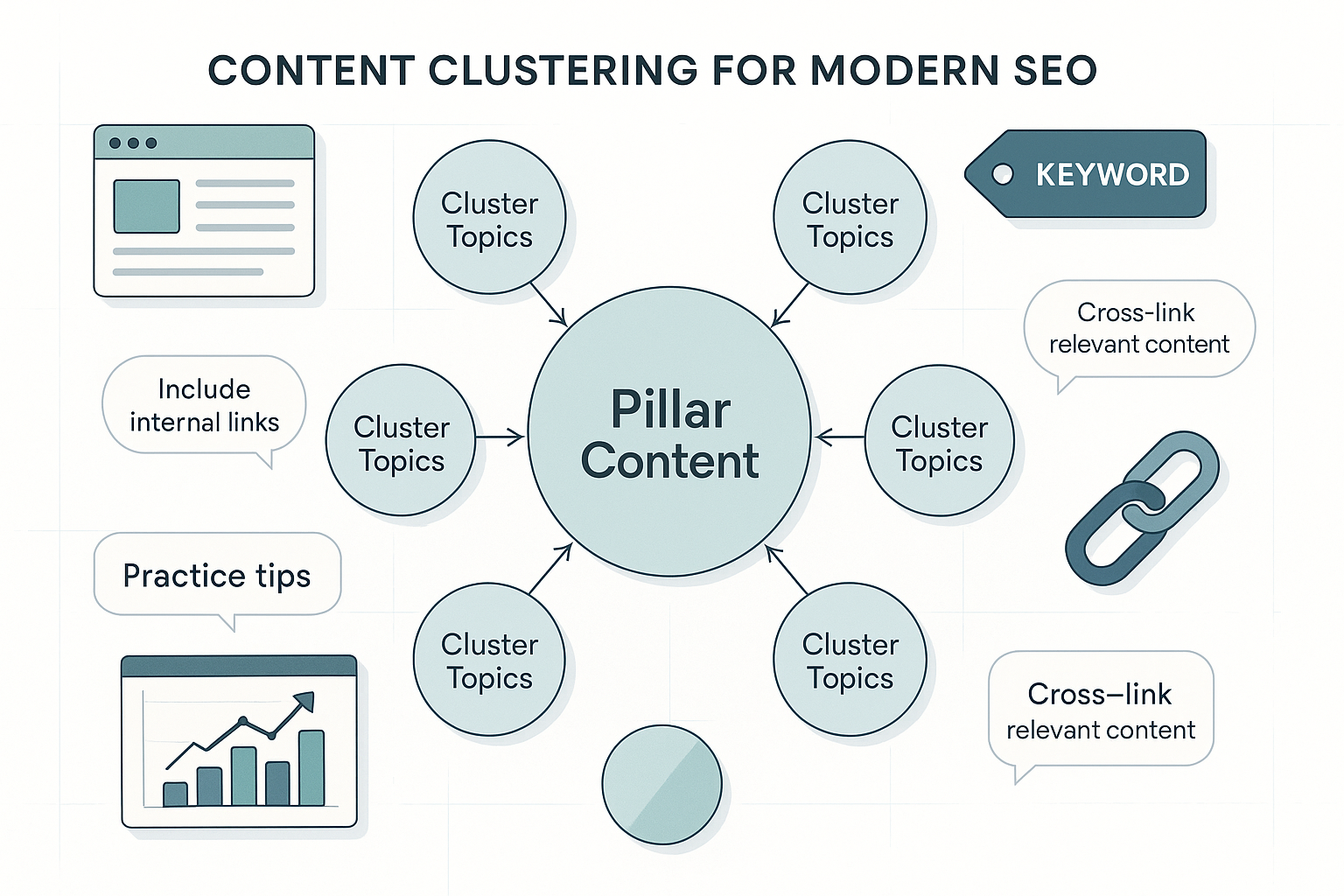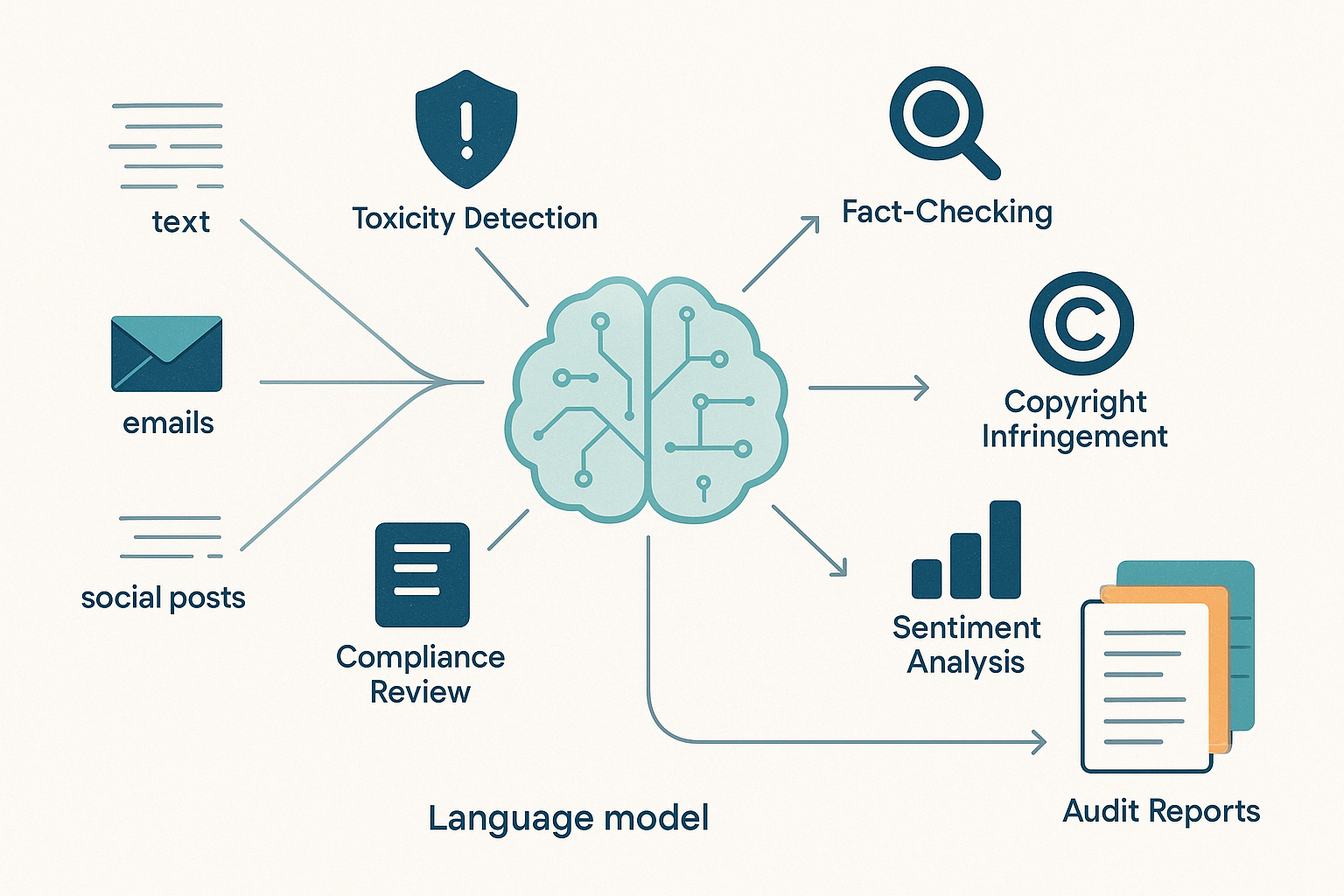Advanced on page SEO made simple.
Powered by POP Rank Engine™
Includes AI Writer
7-day refund guarantee
Remember when SEO was all about stuffing as many keywords as possible into your content? Those days are long gone! Today, search engine optimization has evolved into something far more sophisticated, with artificial intelligence and Natural Language Processing leading the charge.
Think of it this way: search engines have grown up. They've gone from understanding simple commands to comprehending the nuances of human conversation. This evolution is largely thanks to AI-powered algorithms like RankBrain, BERT, and the Helpful Content Update.
So what does this mean for your digital strategy? Everything!
AI-driven search algorithms now:
- Understand the intent behind searches, not just the words
- Recognize natural, conversational language
- Prioritize content that genuinely helps users
- Penalize low-quality, keyword-stuffed pages
The shift from keyword-centric to intent-based optimization has transformed how websites rank. It's no longer about tricking search engines—it's about truly connecting with your audience.
As voice search continues to rise (hey Alexa, hey Siri!), NLP becomes even more crucial. Your content needs to answer questions the way humans actually ask them.
Ready to dive into this brave new world of intelligent SEO? Let's explore how these powerful technologies are reshaping the digital landscape—and how you can leverage them to your advantage!
Which is the best LLM for SEO content?
Get the full rankings & analysis from our study of the 10 best LLM for SEO Content Writing in 2026 FREE!

- Get the complete Gsheet report from our study
- Includes ChatGPT, Gemini, DeepSeek, Claude, Perplexity, Llama & more
- Includes ratings for all on-page SEO factors
- See how the LLM you use stacks up
Understanding AI-Powered Search Algorithms
Have you ever wondered how Google seems to know exactly what you're looking for, even when your search query is a jumbled mess? That's the magic of AI-powered search algorithms at work!
Let's take a quick journey through the evolution of these digital masterminds:
The Rise of the Machines
Remember 2015? While we were all obsessing over the latest Star Wars movie, Google quietly introduced RankBrain—their first AI algorithm that could actually interpret search queries instead of just matching keywords. It was like teaching a robot to understand not just what you say, but what you mean.
Fast forward to 2019, and BERT (Bidirectional Encoder Representations from Transformers) entered the scene. Despite sounding like a character from Sesame Street, BERT was revolutionary in understanding the context of words in a sentence. It could grasp the difference between "apple the fruit" and "Apple the tech company" based on surrounding words!
Then came the Helpful Content Update of 2022-2023, which was essentially Google saying, "We're prioritizing content written for humans, not search engines." Suddenly, those keyword-stuffed articles started disappearing from the top results.
What This Means For Your SEO Strategy
These AI advancements have transformed how search engines work:

The most fascinating shift? We've moved from simply matching keywords to truly understanding user intent. When someone types "best pizza NYC late night," the algorithm knows they're looking for restaurants open late, not articles about pizza history that happen to mention New York.
This means your content strategy needs to evolve too. Instead of obsessing over keyword placement, focus on answering the real questions your audience is asking. It's less about gaming the system and more about genuinely helping people find what they need.
And isn't that what search should be about anyway?
Natural Language Processing in SEO
Ever had that friend who just gets you? The one who understands what you're trying to say even when you're rambling? That's essentially what Natural Language Processing (NLP) does for search engines—it helps them understand human language in all its messy, wonderful complexity.
What Exactly is NLP, Anyway?
At its core, NLP is the branch of AI that gives machines the ability to read, understand, and derive meaning from human languages. It's like teaching a computer to be a language expert, complete with an understanding of:
- Context: Recognizing that "apple" means something different in "apple pie" versus "Apple Watch"
- Semantics: Grasping that "automobile" and "car" refer to the same thing
- Sentiment: Detecting whether a review is positive or negative
- Intent: Understanding if someone is looking to buy, learn, or compare
How NLP is Revolutionizing SEO
Remember when we used to type robotic phrases like "best restaurants Chicago" into search engines? Now we're asking, "Where can I get amazing deep-dish pizza in Chicago that's open late?" And somehow, search engines still understand us!
This shift to conversational queries has completely transformed the SEO landscape:
"Instead of just matching keywords, search engines now aim to understand the meaning behind our searches."
This is particularly important for voice search optimization, where people speak naturally rather than typing keyword-centric phrases.
The NLP Impact on Your Content Strategy

The best part? NLP rewards genuinely helpful content. When you write naturally about a topic you know well, you'll naturally include semantically related terms and address the questions your audience is asking.
So next time you're creating content, think less about pleasing algorithms and more about having a conversation with your audience. After all, Google's NLP isn't just looking for keywords—it's trying to understand the value and relevance of your content, just like a human reader would.
And that's pretty amazing when you think about it!
Key AI and NLP-Powered SEO Techniques
So now that we understand how AI and NLP are changing the search game, let's dive into the techniques that will actually move the needle for your website. Think of these as your new SEO superpowers!
Content Optimization Through Semantic Analysis
Gone are the days when you could just sprinkle keywords throughout your content and call it a day. Modern content optimization tools now use semantic analysis to ensure your content covers a topic comprehensively.
Imagine you're writing about coffee brewing methods. Rather than just repeating "coffee brewing" ad nauseam, these tools might suggest including related concepts like extraction time, water temperature, grind size, and flavor profiles. This creates a content ecosystem that signals true expertise to search engines.
When it comes to choosing the best AI-powered content optimization tool, many SEO professionals compare Page Optimizer Pro vs. SurferSEO to determine which one provides deeper insights into semantic relationships, keyword recommendations, and content scoring. Both tools leverage AI to refine on-page SEO strategies, ensuring your content aligns with search intent while maintaining readability and relevance.
Understanding and Aligning with User Intent
Here's a fun exercise: type "apple" into Google and see what comes up. Are the results about fruit or technology? Search engines make this determination based on countless signals, including your search history and current trends.
User intent analysis helps you create content that matches what people are actually looking for:

Optimizing for Conversational Queries
"Hey Google, where's the nearest coffee shop that's open right now and has oat milk?"
This is a conversational query—and they're becoming increasingly common with the rise of voice search. To optimize for these queries:
- Create content that answers specific questions (Who, What, When, Where, Why, How)
- Use natural language in your headings and content
- Create FAQ sections that address common questions
- Structure content to be eligible for featured snippets
Predictive SEO: Staying Ahead of the Curve
Perhaps the coolest application of AI in SEO is predictive analytics. These tools analyze search trends to forecast which topics will gain popularity before they peak.
Imagine knowing that "pumpkin spice protein smoothies" will be the next big food trend before everyone starts searching for it. You could create content early, establish authority, and ride the wave as searches increase!
By embracing these AI-powered techniques, you're not just keeping up with SEO—you're staying several steps ahead.
Which is the best LLM for SEO content?
Get the full rankings & analysis from our study of the 10 best LLM for SEO Content Writing in 2026 FREE!

- Get the complete Gsheet report from our study
- Includes ChatGPT, Gemini, DeepSeek, Claude, Perplexity, Llama & more
- Includes ratings for all on-page SEO factors
- See how the LLM you use stacks up
Essential AI and NLP Tools for Modern SEO
Let's face it—even if you understand how AI and NLP are transforming SEO, you still need the right tools to put that knowledge into action. Think of these tools as your SEO utility belt—each one designed for a specific purpose to help you climb those search rankings!
Content Creation and Optimization Tools
Creating content that satisfies both human readers and AI algorithms is a delicate balance. Fortunately, there are some impressive AI-powered tools that can help:
Jasper: Your AI Writing Assistant
Jasper (formerly Jarvis) is like having a tireless writing partner who never gets writer's block. It uses advanced AI to help you:
- Generate blog outlines and drafts
- Overcome creative blocks with fresh ideas
- Optimize existing content for better SEO performance
- Create variations of headlines and meta descriptions
I once used Jasper to turn a boring product description into a compelling story that increased conversions by 25%! While it won't replace human creativity, it certainly amplifies it.
Clearscope and Surfer SEO: Your Content Optimization Duo
Imagine having an X-ray vision for top-ranking content—that's what these tools provide:
Clearscope analyzes the top-ranking pages for your target keywords and recommends:
- Which semantically related terms to include
- Optimal content length and readability score
- Heading structure and topic coverage
Surfer SEO takes a slightly different approach with its data-driven analysis of:
- Content structure and formatting
- Entity relationships and keyword density
- User engagement metrics and ranking factors
"Using these tools is like having Google whisper in your ear exactly what it wants to see in your content."
MarketMuse: The Topic Authority Builder
If you're serious about establishing topical authority, MarketMuse is your new best friend. It helps you:
- Identify content gaps in your website
- Create comprehensive topic clusters
- Build content plans that demonstrate expertise
- Analyze your content against competitors
Keyword Research and Analysis Tools
The foundation of any SEO strategy is still understanding what people are searching for—but with an AI twist:

User Experience Analysis Tools
Since user experience is now a critical ranking factor, these tools help you understand how people interact with your site:
Hotjar provides heat maps and session recordings to show you exactly how users navigate your pages. It's like being a fly on the wall watching people use your website!
Google Analytics with its AI-powered insights can reveal patterns in user behavior that you might never spot manually.
Implementing AI-Driven SEO Strategies
The world of SEO is changing fast, and if you’re not keeping up, you’re already falling behind. Gone are the days when stuffing a page with keywords was enough to rank. Now, AI-driven SEO is the game-changer, helping businesses optimize for semantic search, user intent analysis, and overall content relevance. So, let’s break down how you can implement AI-powered SEO strategies like a pro!
1. Leveraging Semantic SEO for Smarter Rankings
Search engines are getting smarter—thanks to machine learning and Natural Language Processing (NLP). Instead of just looking at keywords, they now understand context-based searches and the meaning behind words. That’s where Semantic SEO comes in.
- Instead of focusing on a single keyword, create topic clusters that connect related content.
- Use long-tail keywords that match conversational queries people actually use.
- Optimize for voice search by making content more natural and question-based.
- Ensure your content aligns with search intent—informational, navigational, or transactional.
With Google’s RankBrain and BERT, search engines now prioritize content readability and user experience (UX) over outdated ranking tricks. So, writing for people (not just algorithms) is more important than ever!
2. Mastering Structured Data & Schema Markup
If Google doesn’t understand your content, it won’t rank well. Structured data and schema markup help search engines categorize your pages better, increasing your chances of appearing in featured snippets and rich results.
Here’s what you should be doing:

Pro tip: AI-powered tools like Google’s Search Console and predictive analytics platforms can help identify which schema markup is best for your pages.
3. Optimizing for Content Readability & User Experience (UX)
Google’s Helpful Content Update made one thing clear: content should be people-first, not search-engine-first. That means:
- Writing in a conversational tone that’s engaging and natural.
- Keeping sentences and paragraphs short for better readability.
- Using AI-generated content wisely—balance efficiency with human creativity.
- Ensuring mobile optimization, since most searches happen on phones.
The more accessible and enjoyable your content, the longer people stay on your site—boosting E-E-A-T (Experience, Expertise, Authoritativeness, and Trustworthiness) in Google’s eyes.
4. Ethical Considerations: Balancing AI & Human Creativity
While AI can help automate keyword research, content optimization, and predictive analytics, it’s not perfect. Ethical SEO means:
- Avoiding spammy AI-generated content that lacks originality.
- Ensuring personalization without being intrusive.
- Using chatbots responsibly for conversational queries without replacing human interaction.
At the end of the day, AI should enhance your SEO strategy—not replace the human touch that makes content engaging and trustworthy.
Conclusion
And there we have it—the amazing transformation of SEO through the power of artificial intelligence and Natural Language Processing. We've come a long way from the keyword-stuffing days, haven't we?
The key takeaway? Modern SEO is increasingly about creating genuinely helpful content that addresses real human needs, not just algorithmic requirements. The robots are getting smarter, but in a way that actually rewards authentic human communication!
As we've explored, AI-driven tools can supercharge your SEO efforts by:
- Understanding the true search intent behind queries
- Optimizing content for conversational queries and voice search
- Building comprehensive topic clusters that demonstrate expertise
- Predicting trends before they peak
But remember this important truth: even the most sophisticated AI algorithms still aim to identify content that real humans find valuable. The human touch remains irreplaceable.
The most successful SEO strategies will blend AI efficiency with human creativity, empathy, and expertise. Use these powerful tools to amplify your efforts, but never lose sight of the people on the other side of the screen.
So go forth and create amazing content that both humans and robots will love! The future of SEO may be AI-powered, but it's still very much human-centered.







